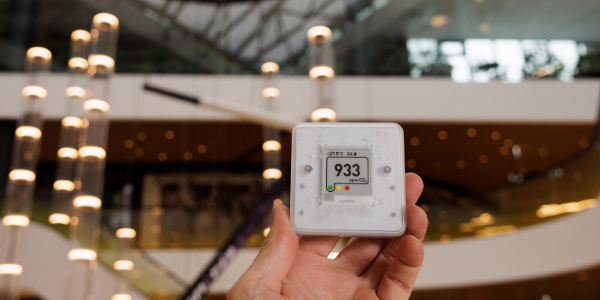Are you looking for effective ways to save energy in your business?
With the world in the grip of a global warming crisis and the cost of energy soaring, it’s easy to see why companies are making every effort to become more sustainable. But did you know that a building management system can go a long way to helping you save energy?
Most BMS’ only utilise around 15% to 20% of their software capabilities, leaving a lot of scope for further energy savings that you probably were not aware that you had.
Buildings become more energy-efficient and therefore more cost-efficient when the correct and full extent of BMS technologies are being used. Getting to know what these are is an excellent way to make your BMS part of your energy saving journey and, in addition, it will help to ensure you are providing the most comfortable environment for occupants.
Increased energy and utility savings
A BMS offers the opportunity to maximise the effectiveness of smart building management systems and energy efficiency programmes. This can result in significant savings because the system has been developed to meet the building’s unique specifications.
Buildings will often have underperforming BMS’ which use up energy unnecessarily, either because their original control programming no longer aligns with current building usage, are using out-of-date technology or are being poorly maintained.
Even just by automating HVAC and lighting systems, for example, it is estimated that overall energy consumption could be reduced by up to 30%.
Building management systems can be programmed to identify areas where energy is not required, for example, and then only heat and light those parts of a building as and when they are in use. Corporate events, such as business meetings and seminars, can be scheduled into the system to ensure a room or rooms are heated up before and during the event and then turned off, once the area is vacated.
Where possible, Cube Controls uses a wider array of environmental IoT sensors to increase the capabilities of more standard designs. Such sensors would include Smart Occupancy Detection that can monitor down to a level of individual desk spaces if so required, which can lead to energy management based on whether the building spaces are occupied, changes in seasonality and forecast weather conditions.
Getting the right BMS fit for your business
We believe that it is our responsibility to promote smarter, more energy-efficient systems by educating clients to the benefits and possibilities wherever we can.
There are many effective energy efficiency routines available in the Building Management System industry and we will always look to take the time to ensure the right fit for each individual building that we work with.
Why not ask us directly about the options which are already available from your existing BMS?
If you’d like to learn more about how to get the most energy saving efficiency out of your building management system, get in touch today.




